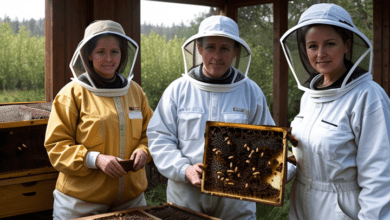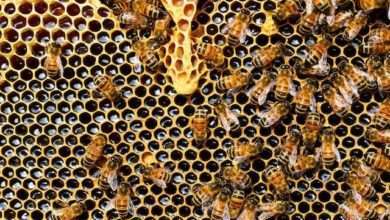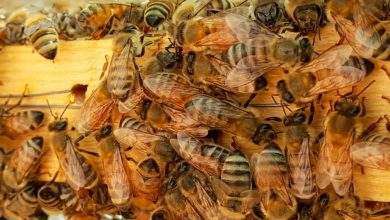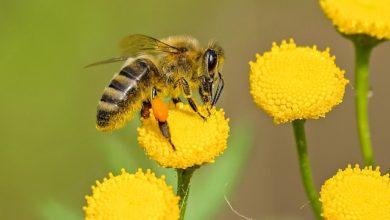Introducing the World’s First USDA Conditionally Licensed Vaccine for Honeybees by Dalan Animal Health
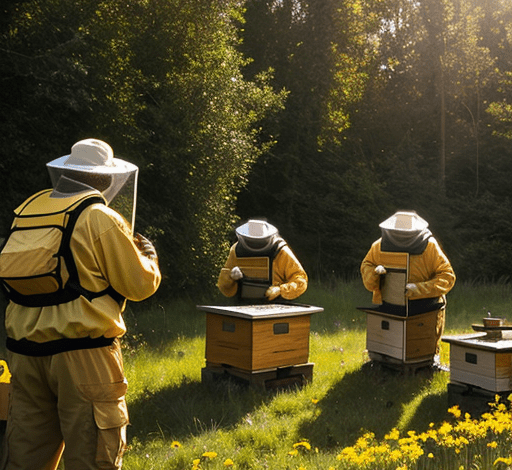
Honeybees, those tiny pollinators crucial for our food production, are facing numerous threats that have led to a concerning decline in their numbers. From parasites and diseases to pesticides, honeybee populations have been dwindling, leading to ecological imbalances and potential agricultural implications.
However, a ray of hope shines through as scientists and industry experts have made a groundbreaking breakthrough – the world’s first USDA conditionally licensed vaccine for honeybees developed by Dalan Animal Health.
The Need for a Honeybee Vaccine
In recent years, the decline of honeybee populations has become a significant concern worldwide. Threats like the Varroa mite, insecticides, loss of habitat, and climate change have all contributed to this decline. The urgent need to develop a honeybee vaccine has become paramount to combat these threats effectively and safeguard our ecosystems. By strengthening their immunity, honeybees can better resist diseases and promote healthier and more resilient colonies.
The Research and Development Process
Developing a vaccine to protect honeybees has been a complex and arduous journey for scientists and researchers at Dalan Animal Health.
The delicate nature of honeybee biology and the unique challenges posed by their social structure required a collaborative effort from entomologists, molecular biologists, and industry experts. Years of research, trials, and refinements culminated in the development of a promising honeybee vaccine.
The USDA Conditional Licensing
A significant milestone in the journey to protect honeybees was achieved when the United States Department of Agriculture (USDA) granted conditional licensing to the honeybee vaccine.
This conditional license recognizes the potential of the vaccine but requires further evaluation, monitoring, and testing before broad distribution. The strict criteria set by the USDA ensure that only safe and effective vaccines reach the market, providing beekeepers with a much-needed tool to protect their colonies.
How the Honeybee Vaccine Works
The honeybee vaccine works by stimulating the immune system of honeybees to better combat diseases. By introducing specific components, the vaccine triggers an immune response that helps honeybees develop resistance to common pathogens and parasites.
Through this vaccination process, the honeybee colonies can enhance their overall health and resilience, reducing the negative effects of diseases that have ravaged populations in recent years.
Field Trials and Results
Field trials conducted to evaluate the honeybee vaccine’s effectiveness have yielded promising results. Beekeepers and researchers have witnessed improved survival rates and reduced disease prevalence among vaccinated colonies.
These trials are significant steps towards validating the effectiveness of the vaccine and providing solid evidence for its broader adoption within the beekeeping community.
Implications for Beekeepers and Agriculture
The availability of the honeybee vaccine has far-reaching implications for beekeepers and the agricultural industry as a whole. Beekeepers, often dependent on honeybee colonies for their livelihoods, can now adopt an additional protective measure against the threats their bees face.
Moreover, the presence of stable honeybee populations contributes to more efficient pollination, enhancing agricultural yields and ensuring the sustainable production of crops that rely on honeybee pollination.
Future Prospects and Ongoing Research
While celebrating the milestone achieved with the honeybee vaccine, researchers emphasize the need for ongoing research and continuous improvement. Efforts are underway to refine the vaccine’s effectiveness, expand its range of protection against other honeybee diseases, and monitor the long-term safety and efficacy of the vaccine. This commitment to ongoing research will ensure that honeybee health and conservation efforts stay abreast of future challenges.
Conclusion
The USDA conditionally licensed honeybee vaccine marks a groundbreaking milestone in honeybee conservation and protection. This new tool provides scientists, beekeepers, and farmers with a means to strengthen the honeybee populations that play an essential role in our environment and food production. It is an optimistic step towards restoring the balance in our ecosystems and securing a thriving future for honeybees and the invaluable services they provide.
FAQ’s:
What is the USDA conditionally licensed honeybee vaccine?
- The USDA conditionally licensed honeybee vaccine is the world’s first vaccine specifically developed for honeybees. Dalan Animal Health has obtained conditional approval from the United States Department of Agriculture, recognizing its potential in combating the threats faced by honeybees. The conditional license allows for further evaluation, monitoring, and testing before broad distribution.
What are the benefits of the honeybee vaccine?
- The honeybee vaccine offers several benefits for honeybees, beekeepers, and agriculture as a whole. It promotes stronger honeybee colonies by increasing their overall health and resilience.
- For beekeepers, the vaccine provides an additional tool to safeguard their colonies against diseases and the associated economic losses.
Furthermore, stable honeybee populations contribute to enhanced pollination, resulting in higher agricultural yields and the sustainable production of crops that rely on honeybee pollination.
What were the results of the field trials conducted with the honeybee vaccine?
- Field trials evaluating the effectiveness of the honeybee vaccine have shown promising results. Vaccinated colonies displayed improved survival rates and reduced disease prevalence compared to non-vaccinated colonies. These results provide strong evidence supporting the vaccine’s ability to protect honeybees and enhance their overall health.
What are the future prospects of the honeybee vaccine?
- Future prospects for the honeybee vaccine involve continuous research and improvement efforts.
- Scientists are actively working to refine the vaccine’s effectiveness, broaden its protection against other honeybee diseases, and ensure long-term safety and efficacy through ongoing monitoring and evaluation. The commitment to ongoing research ensures that honeybee health and conservation efforts remain resilient and adaptive to future challenges.
What About Honey Quality?
- Tests have shown no negative impact on Honey, The product is chemical-free, non-GMO and organic.
How do I contact Dalan Animal Health?
Here is their website: https://www.dalan.com/
